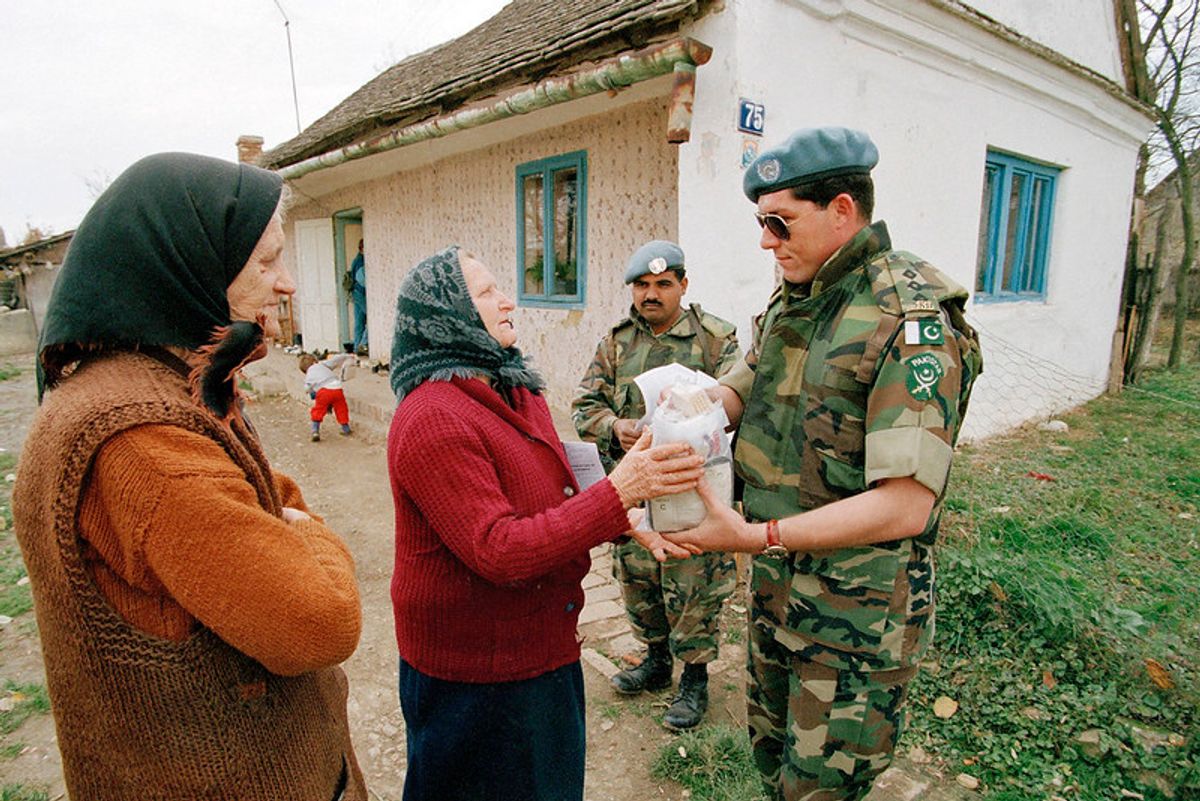The UN has worked tirelessly to end wars and prevent conflicts. COVID-19 could make it harder.

In 1945, the world had just endured the bloodiest war in history. World leaders were determined to not repeat the mistakes of the past. They wanted to build a better future, one free from the "scourge of war" so they signed the UN Charter — creating a global organization of nations that could deter and repel aggressors, mediate conflicts and broker armistices, and ensure collective progress.
Over the following 75 years, the UN played an essential role in preventing, mitigating or resolving conflicts all over the world. It faced new challenges and new threats — including the spread of nuclear weapons and other weapons of mass destruction, a Cold War and brutal civil wars, transnational terrorism and genocides. Today, the UN faces new tensions: shifting and more hostile geopolitics, digital weaponization, a global pandemic, and more.
This slideshow shows how the UN has worked to build peace and security around the world:
Since its founding, the UN has worked tirelessly toward disarmament – Weapons of Mass Destruction and conventional. These efforts facilitated the negotiation of the Nuclear Non-Proliferation Treaty and the Chemical and Biological Weapons Convention. This work continues today through the International Atomic Energy Agency, the UN Conference on Disarmament, the UN Office for Disarmament and the UN Institute for Disarmament Research, and others. In 2007, the UN was involved in destroying weapons in Côte d'Ivoire as part of the "Flame of Peace" ceremony to signify the beginning of the country's disarmament and reconciliation process. IAEA inspections are a critical barrier against nuclear proliferation.
Photo credit: UN Photo/Basile Zoma













